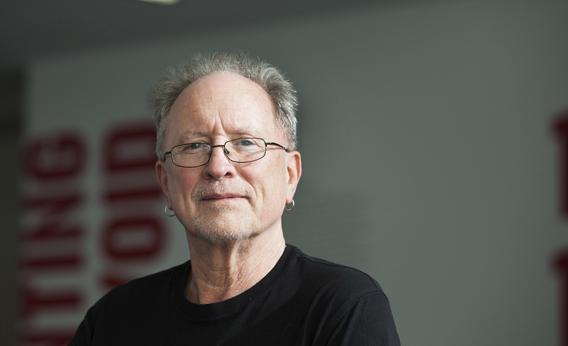A few months ago, as Nelson Mandela was ailing in a South African hospital, one NPR listener took issue with how the former president was being described. The network had called Mandela a mere “civil rights leader.” A civil rights leader? What was Mandela, Al Sharpton?
“Mandela was a fierce freedom fighter and a loving revolutionary who led the forces that toppled apartheid,” wrote the NPR listener. “He was officially a ‘terrorist’ according to the U.S. government until long after the fight for freedom had been won. And as usual, those who opposed him and refused support when it would have counted, will invent a safe story of his life—one palatable to easy-listening Americans who want to be good, but not if it takes too much effort—and love that story to death.”
The listener was Weather Underground founder-turned-professor Bill Ayers, who knows something about terrorists. It’s been five years since Ayers’ old friendship with Barack Obama caused problems for the candidate, and it’s been even longer since Ayers had the bad luck to be quoted saying “I don’t regret setting bombs” in the New York Times—on Sept. 11, 2001. And it’s decades after the government’s crooked surveillance ended its case against the Weather Underground, letting Ayers off “free as a bird” after a decade of placing bombs in government buildings.
Next month Beacon Press will publish Public Enemy: Confessions of an American Dissident. It’s billed as a sequel to Fugitive Days, Ayers’ 2001 Weather Underground memoir, which at the time was the most “self-indulgent and morally clueless” memoir Slate’s Tim Noah had ever read. (This was several years before Eat Pray Love.) I liked Fugitive Days a little more than that, and Ayers was kind enough to sign a copy for me after some of my college friends and I annoyed him at one of the 2001 readings.
Fugitive Days and Ayers’ post-9/11 book tour were streaked with humility. Ayers had done something wrong, and he admitted it, but he did it for the right cause. Public Enemy, by contrast, is a memoir of score-settling, against a cast of extremely stupid (according to Ayers) critics. To hear Ayers tell it, since 2001 he’s been victimized and pilloried and misunderstood by a succession of idiots.
This time around, Ayers is humble only in a short recap of the post-9/11 interviews and when he’s reminding the reader that his wife and fellow Weatherman, Bernardine Dohrn, is completely amazing. In photos together, he looks like “her chauffer.”
In Public Enemy, Ayers sees a cynical campaign from reporters and right-wing bloggers to discredit him. “There was nothing in Fugitive Days that I hadn’t said out loud for thirty years,” he writes, and yet his enemies kept trying to nail him. None of them had the clarity to put his past in the proper context. He was trying to stop a war, remember? “I wondered where in all the noise there was any authentic call for a process of truth-telling about the war and the movement for peace and justice,” he writes, reflecting on the 2001 outrage-spasms. “Where was the proposal for an honest means to reconciliation and a sincere space of accountability[?]”
Ayers suffers fools and thought about literature. When George Stephanopoulos mentioned his name during the final 2008 Democratic primary debate, and Barack Obama denounced him, Ayers recalls that he “thought for a moment about pitiable Gregor Samsa.” Before Andrew Breitbart, Tucker Carlson, and other right-wingers showed up for dinner at his house (a charity auction had gone spectacularly wrong, or maybe spectacularly right), Ayers recites some Rilke poetry to himself:
Let everything happen to you
beauty and terror
just keep going
no feeling is final
Come on, how often do you get to meet an author this devoid of irony? Ayers did end up getting on with Breitbart, who died “too young,” but there’s a difference between the haters who “get” him and the haters who don’t. And sure, a lot of them didn’t—especially in 2008, when the presidency seemed to be at stake if voters knew the truth, Ayers fended off a lot of people who didn’t even have a Wikipedia knowledge of his past. There are people who insisted that Ayers wrote Obama’s first memoir, and he finds this hilarious. He told one self-identified “right-wing blogger” that he’d split the royalties if she could help him prove her theory. “I thought I’d brought a little ray of sunshine into what I imagined must be a slightly dim space.”
He has sunshine to spare. Nothing all that bad happened to Ayers, not in this memoir. There were some canceled speeches, and yeah, there was a humiliating ban from Canada. (“I’d never once warranted a second look entering Beijing or Frankfurt, Cape Town or Cairo, Rio or Taipei.”) There was the time that he was denied emeritus status at the University of Illinois at Chicago, but that ended well enough; Ayers’ friends rallied to him, handed him a “People’s Emeritus Award,” and showed up at his retirement party with buttons reading, “I pal around with Bernardine and Bill.”
He won. Of course he won. He got to see Obama give a victory speech in Grant Park—the ultimate proof of right-wing impotence. Just to be nice, in one of the many, many passages about his critics’ failure to understand that they can’t condemn him and condone military violence, he imagined the conditions for an ideal apology. It would be held in the Kennedy Center, or the Kodak Center, and it would bring government war criminals together with the mooks like him. “Standing with Kissinger and McCain, McNamara and Kerry, Bush and Cheney, I’d be happy to say exactly what I did, take full responsibility, and bow deeply.” And then, back to freedom-fighting.
